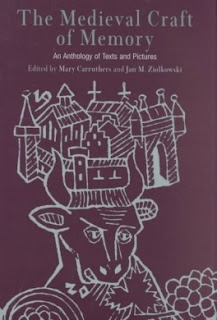“her voice, a jews’ harp with a Croydon accent, came as a shock to some of them” Not nearly as much of a shock as the obvious anti-semitism in the description was to me. I lifted my head from the page and couldn’t quite believe what I was reading. The character in question was a model whose only redeeming feature was her looks, so this phrase was part of a put-down and cannot be redeemed (I will leave aside the slur against Croydon, the place my mother’s family comes from,). But after thinking about it for a short while I thought it useful to be reminded how antisemitism was in the inter war years. How it was a strain in very many polite middle class attitudes. How there was quite a lot of support for Hitler in upper class circles in the 30s. In many cases it might have been more of a distaste rather than hatred but the War to show where hatred led and so the public expression of anti-semitism became much more unacceptable.
We shouldn’t try to clean things up. We should read what was written at the time and know what was of its time. You have to take your authors worts and all.
But that phrase was a detail in the book. There was something else that caused far more intellectual turmoil. Throughout the book there is a strand about the role of women and proscriptive passages about what is masculine and what is feminine. An underlying theory is that men women have been bred and trained for certain thought patterns for centuries and that these are hard wired. After fifty years of the women’s movement this idea comes as a shock.
Now we should not be so naive as to assume that opinions voiced by a character have any necessary relationship to the views of the author but in this case things there doesn’t seem to be much distance. Anyway some things are explanatory description e.g. “She was a clever woman who would not or could not relinquish her femininity, and femininity unpossessed is femininity unprotected from itself, a weakness and not a charm”
But it was the capitulation of Albert Campion’s sister, a highly successful career woman, that was particularly disturbing. How else can you look the acceptance of this proposal as anything other than surrender?
I love you, Val. Will you marry me and give up to me your independence, the enthusiasm which you give your career, your time and your thought? That’s my proposition. It’s not a very good one, is it? I realise that I’ve made a fine old exhibition of myself with Georgia Wells, which has
hardly enhanced my immediate value in the market, but I can’t honestly say that I regret the experience. That woman has maturing properties. However, that is the offer. In return – and you probably won’t like this either – in return, mind you (I consider it an obligation), I should assume full responsibility for you. I would pay your bills to any amount which my income might afford. I would make all decisions which were not your province, although on the other hand I would like to feel that I might discuss everything with you if I wanted to; but only because I wanted to, mind you; not as your right. And until I died you would be the only woman. You would be my care, my mate as in plumber, my possession if you like. If you wanted your own way in everything you’d have to cheat it out of me, not demand it. Our immediate trouble is serious, but not so serious as this. It means the other half of my life to me, but the whole of yours to you. Will you do it?
But as I said: that was then and this is now. When you read the book you have to take them on their own terms. You can then enjoy the tight plotting and very sharp character description. Reading Margery might be an awkward pleasure but it is a pleasure nevertheless.
First published
1939
Link to last book
Obviously the same author but I read it because I wanted to read one of her straight forward detective novels.






